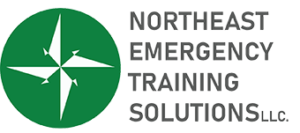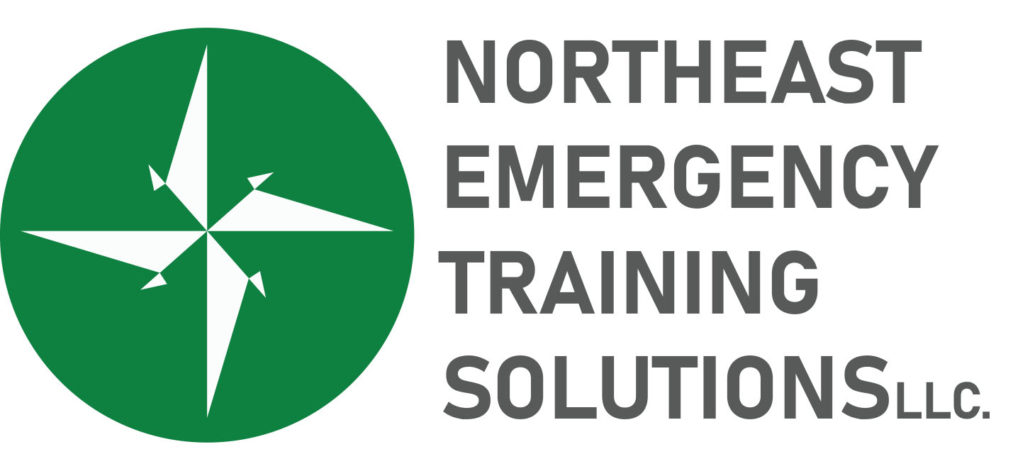2026 Spring Hybrid EMT Course Syllabus
Sr. Instructor/Coordinator: Michael LaBombard | Eric Casavant
Email: mike@netsvt.com
Email: eric@netsvt.com
Course Meeting Days and Times:
- Tuesdays, 18:00 – 21:00: Instructor-Led Lecture & Discussion via Zoom
- Saturdays, 08:30 – 16:30: Hands-On Skill Practice (see below for specific dates)
Cost: $1500.00
Course Description
The Emergency Medical Technician Hybrid course prepares the EMT student to provide pre-hospital assessment and care for patients of all ages with a variety of medical conditions and traumatic injuries. Areas of study include an introduction to emergency medical services systems, roles and responsibilities of EMTs, anatomy and physiology, pharmacology, medical emergencies, traumatic injuries, special considerations for working in the prehospital setting, and providing patient transportation.
Teaching/Learning Methods:
Teaching/Learning methods in this course may include, but are not limited to: assigned readings, group discussion, critical thinking exercises, practical skill competencies, and class activities. Mandatory live instructor online sessions will occur weekly via Zoom and will be used as most of the didactic learning for this course. For those unable to “attend” live online sessions make-up options may be an option on a limited basis at the discretion of the course coordinator.
Evaluation procedures include quizzes, computer-based examinations, and skill competencies.
Weekly Zoom Meeting:
Join Zoom Meeting
https://us06web.zoom.us/j/3766388438?pwd=SSc6LSOA1gl1ROmaMbixLYSmTJvDhk.1
Meeting ID: 376 638 8438
Course Objectives:
At the completion of this course the student shall be able to:
- Describe the roles of EMS in the health care system.
- Demonstrate the professional attributes expected of EMTs.
- Perform the roles and responsibilities of an EMT with regards to personal safety and wellness, as well as the safety of others.
- Perform the duties of an EMT with regard for medical-legal and ethical issues, including functioning under medical direction and within the scope of practice.
- Apply principles of anatomy, physiology, pathophysiology, life span development, and therapeutic communications to the assessment and management of patients.
- Identify the need for and perform immediately lifesaving interventions to manage a patient’s airway, breathing, and circulation.
- Assess and manage patients of all ages with a variety of complaints, medical conditions, and traumatic injuries.
- Apply principles of emergency medical services operations, including considerations in ambulance and air medical transportation, multiple-casualty incidents, gaining access to and extricating patients, hazardous materials incidents, and responding to situations involving weapons of mass destruction.
Functional Job Requirements:
All students must meet the functional job requirements of an Emergency Medical Technician as outlined in the Student Handbook distributed online by the Vermont Department of Health Office of EMS throughout the program.
Course Textbook:
AAOS Emergency Care and Transportation of The Sick and Injured, 12th Edition
Learning Resources:
- National EMS Education Standards – EMT Instructional Guidelines (outline)
- Vermont Statewide Emergency Medical Services Protocols 2025
- Jones and Bartlett Learning – jblearning.com
- National Registry of Emergency Medical Technicians – nremt.org
- VT LIGHTS Database – https://vtems.imagetrendlicense.com/lms/public/portal#/login
- FEMA Online Training – https://training.fema.gov/
Course Completion Requirements:
Successful completion of this course requires adherence to course policies, completing all course assignments, maintaining a course average of 70% with a minimum score of 70% on the course final examination, and successfully demonstrating all required competencies. In addition, all students will be required to have a minimum of five documented patient contacts.
Course Attendance Policy:
Student participation is required for all scheduled live online sessions, as well as lab sessions. Students may be dropped from the course for excessive absences of any kind at discretion of the instructor coordinator.
Online class attendance will be based on weekly completion of assignments, while lab session attendance will be based on bi-weekly completion of practical session competency sheets.
Excused absences may be granted by the course instructor/coordinator and/or senior instructor for extenuating circumstances. If more than two absences occur for any reason, the status of the student will be reviewed by the NETS faculty to determine a disposition. Course failure is likely under these circumstances.
If a student misses any weekly activities, he or she is responsible for any missed quizzes, examinations, and material covered in that block. Prompt arrival is expected at all class activities, whether in-person or online. Like being on shift for your agency – lives depend on our prompt response and prompt attendance.
Behavioral Expectations:
Students are expected to conduct themselves in accordance with the professional expectations for EMT’s at all times. Students are reminded that they are representatives of Vermont EMS as well as the agencies they serve and this educational program. Professional conduct is essential to a successful course experience and rewarding EMS career.
Dress and Appearance:
- Students shall be appropriately and neatly attired so as not to distract from the learning process. Students should wear comfortable slacks or pants, shirts or t-shirts, and boots, shoes or sneakers.
- For the safety of the student and others, students may not wear shorts, tank tops, half shirts, sleeveless shirts, halter-tops, tube tops, skirts, open toe/heel shoes or sandals.
- Students should dress with safety in mind, as training sessions will require the use of various equipment and training aides.
- Staff members accept the responsibility for reasonable interpretation of this policy and advising of the student in its regard.
- Students arriving wearing inappropriate attire may not be able to participate in the training evolutions, for the safety of the student.
- On days of practical labs the students will wear clothing similar to what they will wear while on duty with their service. This provides the students the ability to train like they will practice.
Academic Dishonesty:
Academic dishonesty in any form will not be tolerated and is grounds for immediate dismissal from the program and other administrative action. Examples include, but are not limited to:
- Cheating in any form
- Falsification or forgery of academic documents, applications, clinical evaluations, lab evaluations, etc.
- Plagiarism (including copying and pasting of electronic text into assigned work)
Course Deposit and Refund Policy:
Students are required to provide a minimum deposit of $375.00 to secure a seat in the course. Full payment is preferred, but payment plans may be considered on a case-by-case basis. Full refunds for the class will be granted, less the deposit which will be used to cover non-refundable course materials, if the student drops from the course within the first (2) weeks. No refunds will be granted after the first (2) weeks have passed.
Course registration and payment can be done through the NETS website, www.netsvt.com
Course Grading and Grading Scale:
All class exams will be done through Jones and Bartlett and can be found in the “Test Prep” section at the top of the dashboard. Each student will receive an account as part of the class.
All class quizzes will be conducted during the beginning of the practical lab days (Saturdays) and will be to assure proper understanding and knowledge of medications EMTs can administer.
All students will be required to complete (5) clinical patient contacts with their agency, or may accomplish a minimum of (12 hours) of clinical observation with an agency of choice. Both of these require being observed by a licensed EMT or above and clinical paperwork will need to be completed and submitted for approval by the instructor coordinator.
Although passing is 70%, it is strongly encouraged that students strive for an 80% on all exams. This will encourage your study for successful passing of the CAT (Computer Adaptive Test).
Quizzes/Assignments 10 %
3 Exams 10 % each
Skills 30%
Final Exam 30 %
Total 100 %
Retest and Late Exam/Assignment Policy:
Students with a non-passing grade on an exam will be allowed (1) retest opportunity per exam. The retest must occur within (1) week of the closing date of the posted exam. The higher of the two grades will be the score recorded within the gradebook.
| Percent | Letter Grade |
| 100 | A |
| 95-99 | A- |
| 90-94 | B |
| 85-89 | B- |
| 80-84 | C |
| 76-79 | C- |
| 70-75 | D |
| Below 70 | F |
Students will be required to complete the following online training programs:
NIMS 100 https://training.fema.gov/is/courseoverview.aspx?code=IS-100.c
NIMS 700 https://training.fema.gov/is/courseoverview.aspx?code=IS-700.b
Haz-Mat Awareness: https://training.fema.gov/is/courseoverview.aspx?code=is-5.a
DCF Mandated Reporter: https://dcf.vermont.gov/news/training-mandated-reporters
*** These certificates need to be sent via email to your instructor coordinator prior to being approved as course completion. If you already have these certificates they can be sent as soon as convenient to show proper course completion of all courses. ***
Competency Plan:
The following guidance from the Vermont EMS Education Competencies Group has been developed regarding in-program skill performance and scenarios.
Each student must demonstrate competency in the necessary skills as an entry level EMS provider to qualify for successful course completion. The skill competencies will be documented using skill evaluation forms that will be compiled to become a part of the student’s permanent education file.
The formative Skills Lab evaluation forms, as implemented by this Program, represents a broad array of skills that provides adequate representation of the necessary skill domain of an EMT. These skills are determined by the standards set by the NREMT, NHTSA, and the EMS Department of the Vermont Department of Health.
Phase I (Skills Lab Skill Sheets) – In this phase, students will demonstrate competency of individual skills. Skills can be evaluated by a peer or an instructor according to the chart below.
Phase II (Skills Lab Situation Based Use) – In this phase, the students are given simple formative scenarios which will allow them to demonstrate basic critical thinking and the application of isolated skills. These scenarios can only be evaluated by an instructor.
Phase III (Scenario Lab) – In this phase, the students are given comprehensive summative scenarios which will allow them to demonstrate the holistic application of skills and critical thinking. These scenarios are not intended to be a “talk my way through the scenario” but must be run in such a way to precisely match as closely as possible the way a real EMS call would actually be handled in the out-of-hospital setting. All assessments, clinical measurements, interventions, and documentation must actually be performed by either the team leader or delegated appropriately to another team member. These scenarios can only be evaluated by an instructor.
Click here to add your own text











